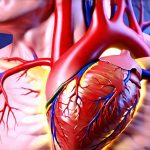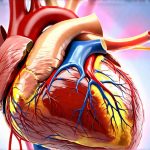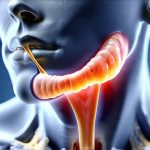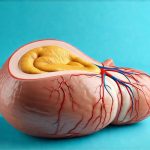Gastroesophageal reflux disease (GERD) is a common condition affecting millions worldwide, often characterized by heartburn, regurgitation, and difficulty swallowing. While commonly associated with digestive discomfort, many individuals report experiencing unsettling sensations like heart palpitations alongside their GERD symptoms. This overlap can be incredibly anxiety-provoking, leading people to worry about underlying cardiac issues when the source of the problem might actually reside within the digestive system. It’s a complex interplay between the esophagus, vagus nerve, and even psychological factors that creates this confusing experience, making accurate information crucial for those seeking understanding and relief.
The connection isn’t necessarily about GERD directly impacting the heart itself. Instead, it’s often a result of how the body perceives the symptoms of GERD and the physiological responses triggered by them. The vagus nerve, a critical component of the autonomic nervous system, plays a central role in regulating both digestion and heart rate. Acid reflux can stimulate this nerve, leading to fluctuations in heart rhythm that feel like palpitations – even when there’s no actual cardiac problem. This article will explore the intricate relationship between GERD and perceived heart palpitations, shedding light on the potential causes, contributing factors, and ways to differentiate between digestive distress and genuine cardiovascular concerns.
The Vagus Nerve and Gastro-Cardiac Reflexes
The vagus nerve is often called the “wandering nerve” because of its extensive reach throughout the body. It connects the brainstem to many important organs, including the stomach, esophagus, and heart. This bidirectional communication means that signals from one area can profoundly influence another. In the context of GERD, when acid reflux occurs, it irritates the esophageal lining. This irritation sends signals via the vagus nerve to the brain, which then responds by attempting to regulate the digestive process – and inadvertently affecting heart rate. This is known as the gastro-cardiac reflex.
The gastro-cardiac reflex isn’t unique to GERD; any significant stimulation of the vagus nerve in the gastrointestinal tract can potentially cause it. For example, a large meal, even without reflux, could sometimes trigger similar sensations. However, the chronic irritation associated with GERD makes this reflex more frequent and pronounced in individuals experiencing the condition. This leads to heightened awareness of bodily sensations – people become hyper-vigilant about their heartbeats – potentially exacerbating anxiety and creating a vicious cycle where perceived palpitations amplify the feeling of discomfort.
Furthermore, the vagus nerve isn’t simply a passive messenger; it releases acetylcholine, a neurotransmitter that slows down heart rate. In response to esophageal irritation, an overstimulation of vagal tone can lead to bradycardia (slowed heart rate) or irregular rhythms that are felt as palpitations rather than being genuinely dangerous arrhythmias. It’s important to understand this distinction: the sensation isn’t necessarily indicative of a pathological heart condition. Perhaps understanding how can reactions be a sign can help too?
Distinguishing GERD-Related Palpitations from Cardiac Arrhythmias
The challenge for many individuals is differentiating between palpitations caused by GERD and those stemming from underlying cardiac issues. While GERD-related palpitations are generally benign, ignoring potential heart problems can have serious consequences. Here’s what to look for:
- Frequency and Duration: GERD-related palpitations tend to occur in conjunction with reflux episodes – after meals, when lying down, or during periods of stress. They’re often brief and intermittent. Cardiac arrhythmias may be more frequent, prolonged, or unpredictable.
- Accompanying Symptoms: Cardiac palpitations are frequently accompanied by symptoms like chest pain, shortness of breath, dizziness, lightheadedness, or fainting. GERD-related palpitations are typically associated with classic reflux symptoms such as heartburn, regurgitation, and a sour taste in the mouth. However, it’s crucial to note that atypical presentations can occur.
- Triggers: Cardiac arrhythmias may be triggered by caffeine, alcohol, stress, or exercise. While stress can also trigger GERD, the primary trigger for reflux-related palpitations is usually related to digestive processes. If you find yourself struggling with triggers, it’s worth exploring can you be addicted to them?
If you experience any of these concerning symptoms alongside palpitations – especially chest pain, shortness of breath, dizziness, or fainting – seek immediate medical attention. A healthcare professional can perform tests like an electrocardiogram (ECG) and potentially a Holter monitor to assess your heart rhythm and rule out cardiac arrhythmias. Don’t self-diagnose; accurate evaluation is paramount. It’s also helpful to understand can emotions trigger these responses.
The Role of Anxiety and the Mind-Body Connection
Anxiety frequently coexists with GERD, creating a feedback loop that intensifies both conditions. Individuals experiencing GERD symptoms often become anxious about their health, fearing serious complications like esophageal cancer or heart disease. This anxiety, in turn, can exacerbate GERD symptoms by increasing stomach acid production and tightening the lower esophageal sphincter (LES).
The mind-body connection is powerful. Anxiety directly affects the autonomic nervous system, which controls involuntary functions like heart rate and digestion. When anxious, the body enters “fight or flight” mode, releasing adrenaline and cortisol that can cause palpitations, increase heart rate, and disrupt digestive processes. This creates a situation where anxiety amplifies the perception of GERD symptoms – including palpitations – making them feel more severe and frightening. Recognizing can gut symptoms be linked to stress is helpful here too.
Addressing anxiety is therefore an important part of managing GERD-related palpitations. Techniques like deep breathing exercises, meditation, yoga, and cognitive behavioral therapy (CBT) can help reduce stress levels and break the cycle of anxiety and digestive distress. Remember: recognizing that your palpitations may be related to GERD and not necessarily a heart condition is often the first step toward alleviating anxiety. Additionally consider if can frequent snacking contribute to your stress.
Lifestyle Modifications and Medical Management
Managing GERD effectively is crucial for minimizing reflux episodes and reducing the likelihood of experiencing associated palpitations. Here are some lifestyle modifications that can help:
- Dietary Changes: Avoid trigger foods such as caffeine, alcohol, chocolate, fatty foods, spicy foods, and acidic foods (citrus fruits, tomatoes).
- Eating Habits: Eat smaller, more frequent meals rather than large ones. Avoid eating late at night.
- Lifestyle Adjustments: Elevate the head of your bed by 6-8 inches to prevent nighttime reflux. Maintain a healthy weight and avoid smoking.
- Stress Management: Incorporate stress-reducing techniques into your daily routine.
Medical management typically involves over-the-counter medications like antacids, H2 blockers (e.g., famotidine), or proton pump inhibitors (PPIs) to reduce stomach acid production. In some cases, a doctor may recommend prokinetic agents to help speed up digestion and prevent reflux. If palpitations are severe or persistent despite GERD management, further cardiac evaluation is essential. Never self-medicate; always consult with your healthcare provider to determine the most appropriate course of treatment for your specific situation. A thorough assessment will help pinpoint the underlying cause of the palpitations and ensure that you receive the right care. It’s important to remember can gut issues be related to past choices, too. Finally, consider if can unripe fruits trigger a reaction for you?


















